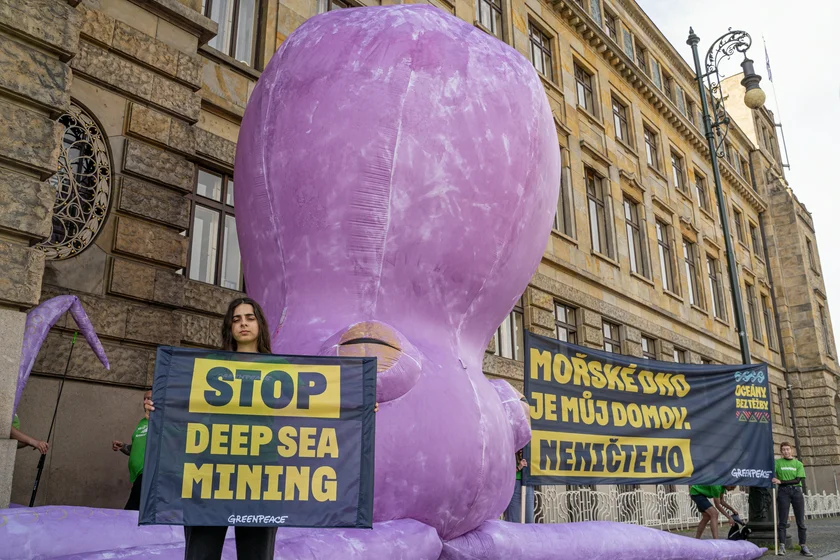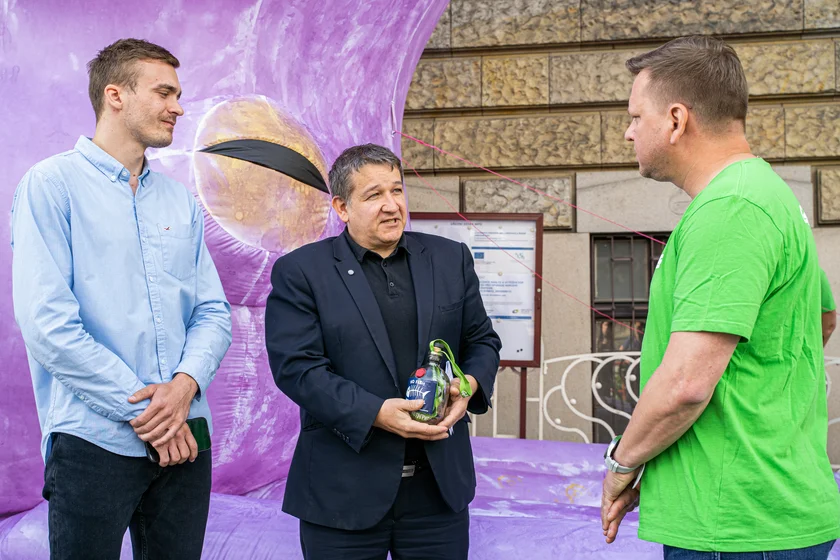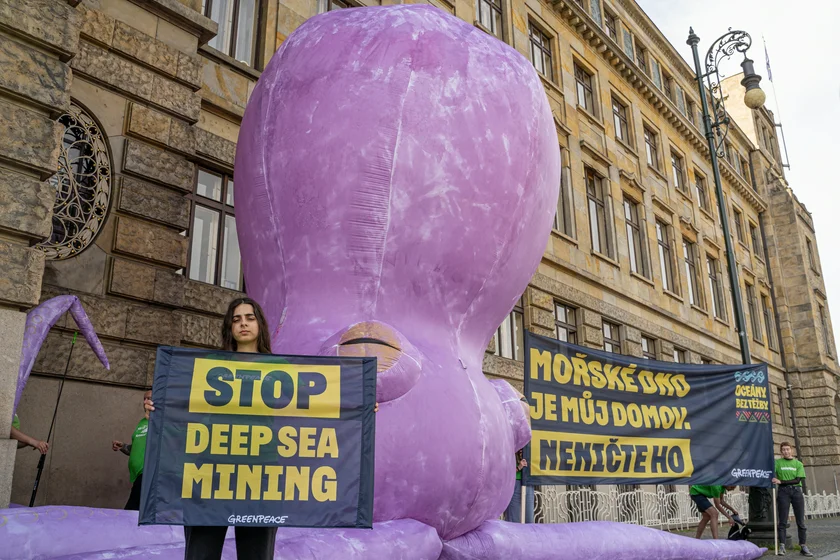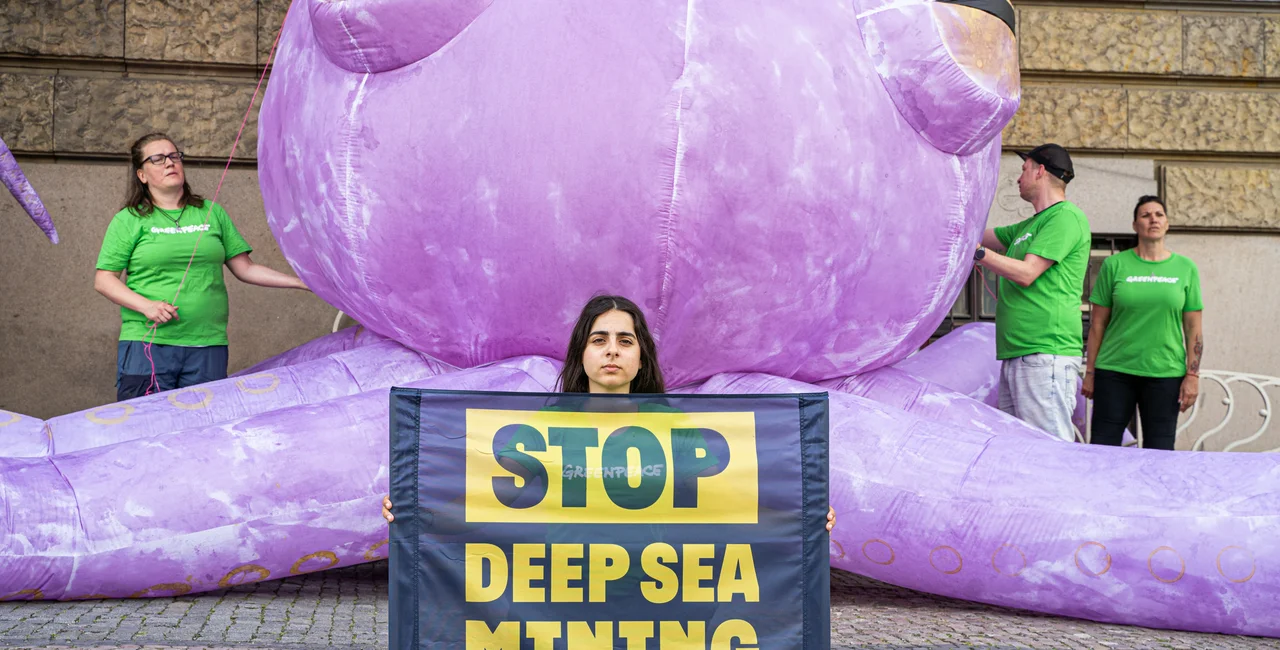On Thursday, Greenpeace activists inflated a giant ghost octopus, measuring almost 14 meters from the tip of its head to the end of its tentacles, in front of the Czech Ministry of Industry and Trade in Prague's Old Town.
The organization says the inflatable, which was accompanied by a banner reading "The seabed is my home. Don't destroy it," is intended as a protest against deep sea mining. The recently discovered ghost octopus is representative of the unique animal species that inhabit the seabed at great depths.
In addition, Greenpeace said that the protest draws attention to the dangers of the newly emerging destructive deep sea mining industry that even large multinational companies such as Google and BMW have vowed not to support.
According to Greenpeace, it is crucial that countries worldwide, including the Czech Republic, impose a moratorium on deep-sea mining. Activists are demanding that the Czech Republic send a representative to the ISA Council meeting in Kingston, Jamaica, and vote in favor of a moratorium on deep-sea mining.
"Czech Minister of Industry and Trade Jozef Sikela and his subordinates may be instrumental in stopping deep sea mining, as the Czech Republic has a representative on the Council of the International Seabed Authority (ISA)," Greenpeace writes in a press release.
Over 25,000 people from the Czech Republic have already signed Greenpeace’s appeal, which calls for a halt to deep-sea mining. A representative of the Ministry of Industry and Trade Pavel Kavina was also present and took up Greenpeace's demands.
The next ISA meeting is in Kingston, Jamaica, and will address the international status of deep-sea mining. In July, an ultimatum to set regulations for this emerging industry expires, so companies could start applying to the UN for permission to develop commercial projects as early as July.
The future of deep-sea mining hangs in the balance as mining companies exploit a legal loophole to push for quick assessments and approvals. With no regulations in place, governments face pressure to make decisions within a two-year timeframe. The recent ISA meeting failed to establish restrictions, leaving the door open for potential drilling approvals starting on July 9.
Scientists and indigenous activists in the affected areas have warned against deep-sea mining. Some countries, such as France, Spain, Germany, Chile, and New Zealand, are speaking out against deep-sea drilling and calling for a ban or at least a temporary moratorium, while others are joining the initiative. The Czech Republic's stance remains uncertain, as its delegation remained silent during the last meeting.

















 Reading time: 2 minutes
Reading time: 2 minutes 



























